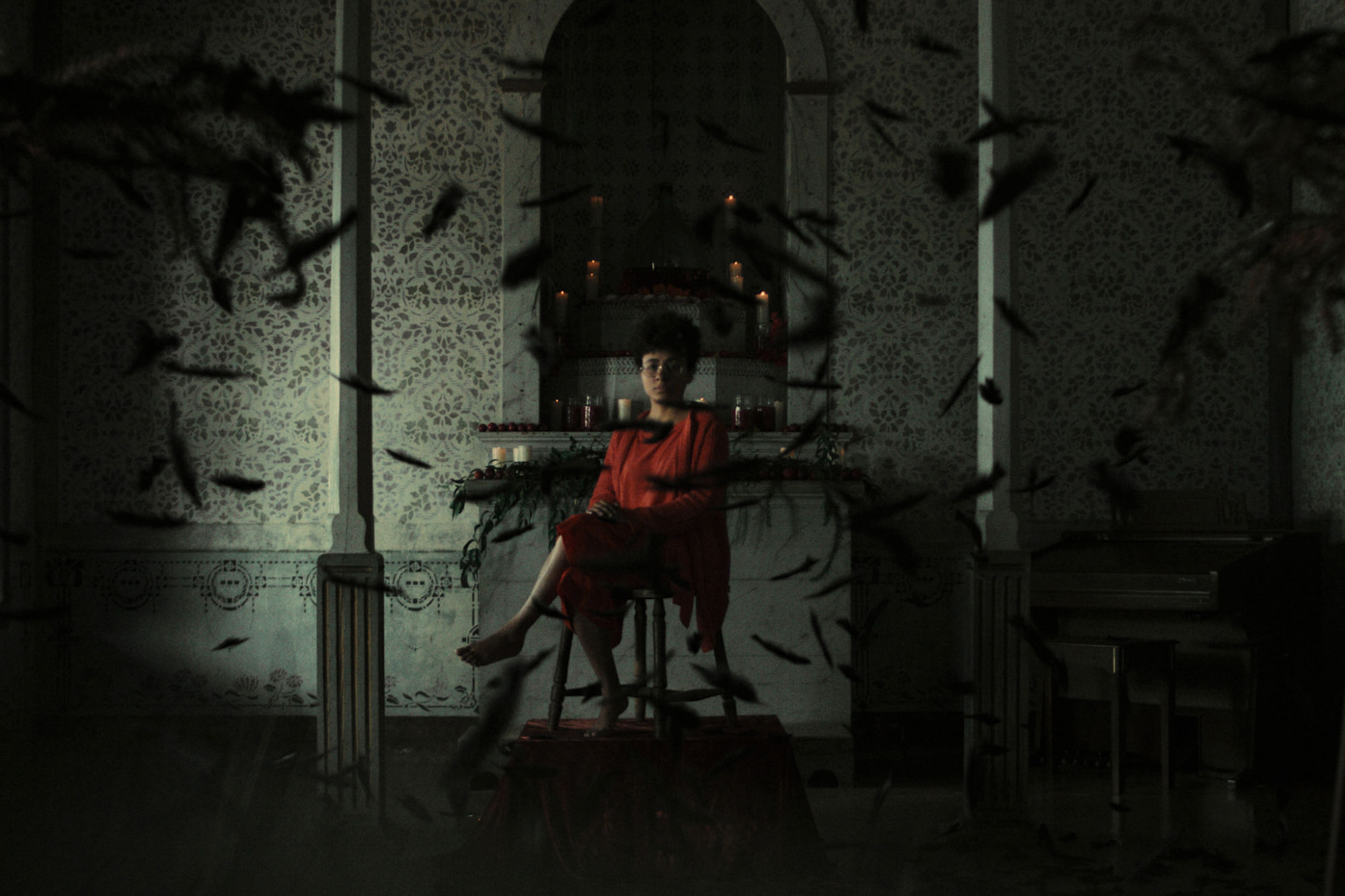
Existing in a space outside of definitive time, Eu Não Te Conheço from Fernando Moreira channels Brazilian familial trio Tuyo’s rituals of self-protection into a spiritual shield for their native Brazil which confronts and protects in equal measure. A film more concern with conveying feeling rather than acting as a visual translation of song lyrics, Moreira reveals how he developed the emotional structure of this transcendental music video.
Before we started working on this film, I had been developing a relationship with the band Tuyo for over a year. We knew we wanted to make something together so from time to time, we would hang out, listen to demos of the songs that would be on their album and talk about the album production process. During that time of pre-production of the album, we had an idea we liked for a video to another song on the album. However, when they showed me the finished album, Eu Não Te Conheço was too strong. It immediately made images emerge in my mind.
The traveling in on the first scene, the lamps flashing, the fruits levitating, the three of them facing the camera in confrontation and holding objects, the circular traveling around them while they dance with elements around them reacting to the dance/ritual. These were all images that came to my mind while I listened and relistened to the song for the first time.
I personally like music videos that elevate the music, instead of competing with it.
From these images, the band and I talked a lot and developed the concept of a ritual of protection that encapsulates the film. We discussed the small rituals of protection that the three of them engage in the day-to-day, and translated them into our script. Also, listening to them, it became clear to me that they also viewed protection as confrontation, and confrontation as protection. That became an important aspect of the tone of the film and of how they were portrayed in it.

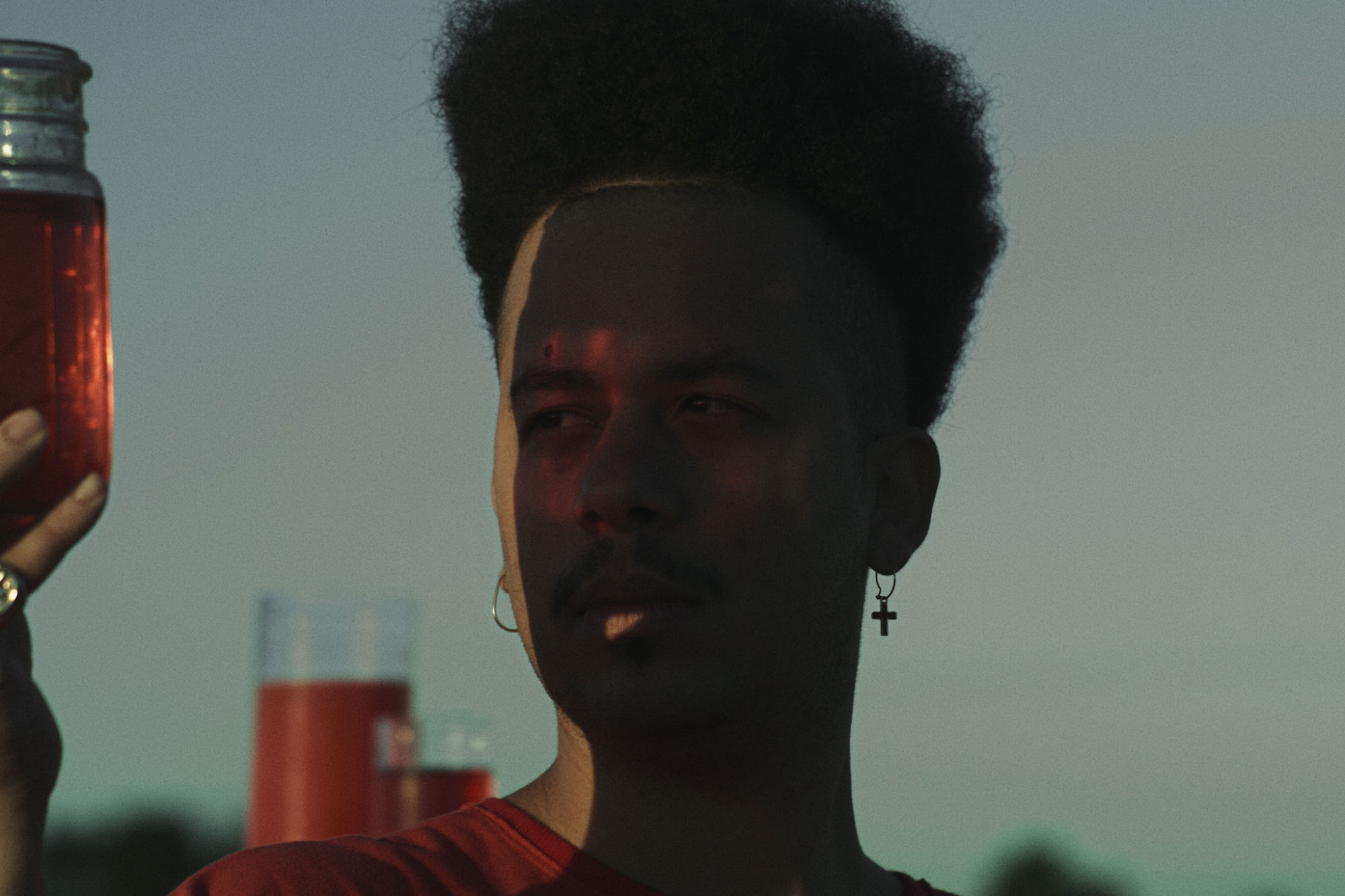
The song is called I Don’t Know You, in Portuguese. It has some simple lyrics, describing how she puts one hand on the chest and the other on the belly, to open and close her pathways. In the chorus, she repeats “I didn’t ask your name, I didn’t invite you here, I didn’t ask you for a piece, I don’t know you”. These words were what united the images and the idea of a ritual of protection. This is a film about self-preservation, care and protecting our own. I personally like music videos that elevate the music, instead of competing with it. That’s why we tend to focus on atmosphere, tone and mood. The song is very strong in itself so it was important to capture its sensations and build on them.
We decided to set it in an isolated house in nature. It was supposed to feel out of time but grounded in Brazil. That’s because we believe the themes of the band, as personal as they are, are indissociable from the context of our country’s history and the band’s place in it as black people. The film’s narrative is subjective, open to interpretation, but there is an emotional structure that starts with menace, develops into their preparation of a ritual, into feelings of self-care and also confrontation, which builds up to the catharsis in the end. It was also important to have a unique shot of the three of them together. This is a scene out of our place and time that, to me, brings up feelings of peace and warmth, and represents the subjective result of their self-protection and care.
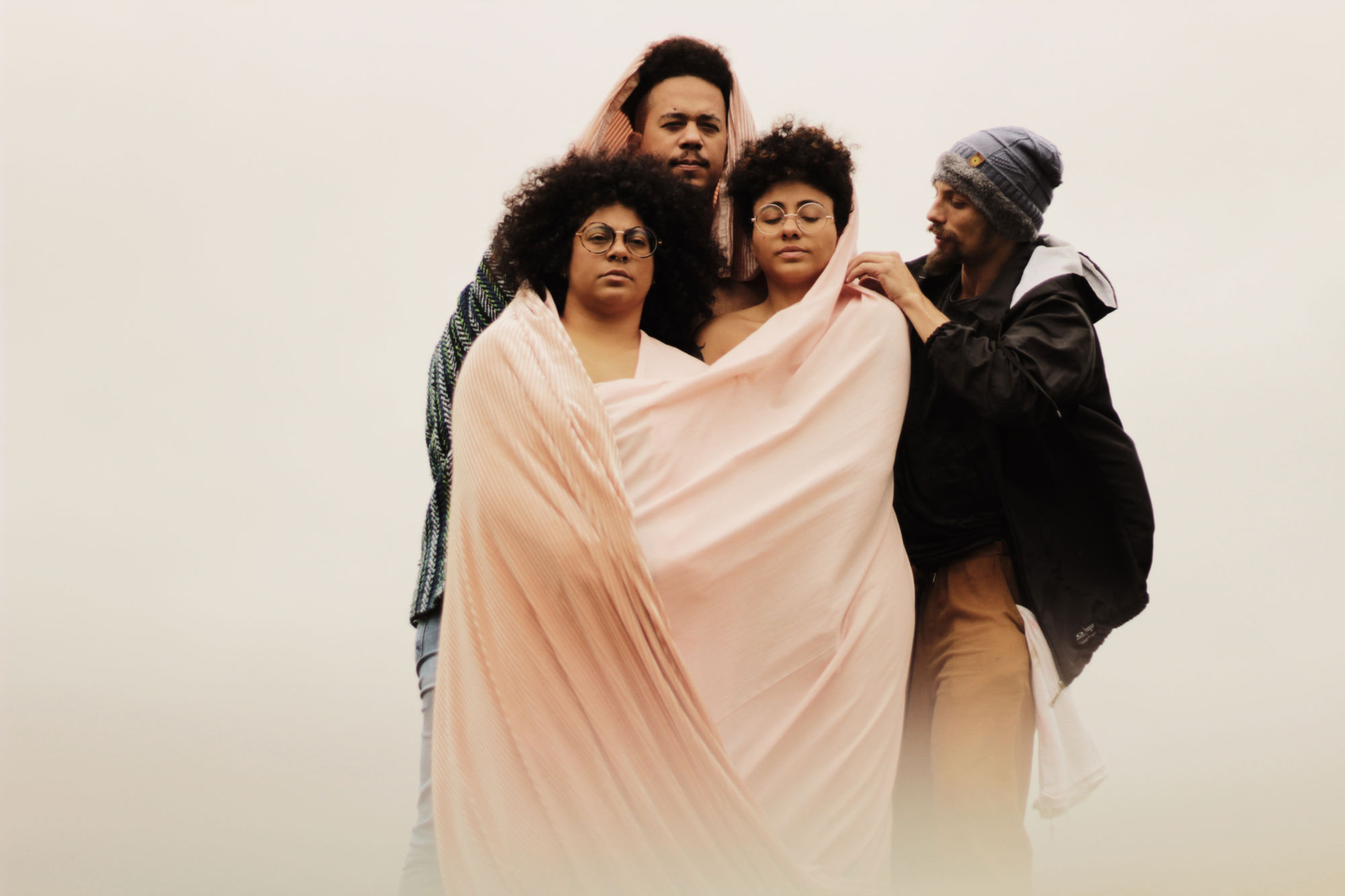

Our production process was very long, due to the complexity of our concept in comparison to our limited budget and resources. The pre-production took 3 months, mainly searching for the perfect location. We knew that this was a very important aspect of our film because we didn’t have the material means to transform our sets much. Moreover, we wanted it to feel out of time, but also very grounded in Brazil. Finding a location that reflected that was a big challenge.
Our Producer Eduardo Alves, our AD Matheus Agudelo and I spent weeks searching for this location. We made around 10 trips to the coast and countryside of our state Paraná to look for houses and fields. After a lot of driving around and calling different people, we found this colonial farm in Castro that we fell in love with. The farm is around 200 years old, built in the colonial era in Brazil. Because of the enslavement that took place on the farm for decades, we were a bit insecure about it. However, talking to the band member Lio, we agreed that it was important to occupy this space that carries so much pain of this country’s history (especially its black people) and resignify it by having the band doing the ritual in it.
We didn’t want it to feel modern, but it was important that this didn’t look like a period piece as well.
Our crew was mixed with a few people from São Paulo, but most of us were from Curitiba. We spent 3 days in Castro, slept all together in the town and shot everything in and around the farm. We worked with our costume designers from Projeto Zero Um to dress the band in a way that could be timeless. We didn’t want it to feel modern, but it was important that this didn’t look like a period piece as well. To do that, we mixed elements from second-hand shops, garments from local modern brands and original clothes designed by Projeto Zero Um. The production design was also important to create this “out of time” rituals and also develop the visual identity of the film. The production design duo Man Made were aware of how important the objects used in the ritual were. We talked a lot about how to create this universe that they inhabit without referring to any religion, but creating a mysticism of our own.
We shot this on the Red Scarlett, rented from Red Mamut Camera Rental which supported us a lot. The lenses used were a kit of old Leica photography lenses which were adapted to cinema, owned by our Cinematographer Marcos Ribas. Marcos and I also went to a glass shop and bought some oddments of glasses and mirrors that had different textures or carvings which we used to create some subtle reflections in some scenes.



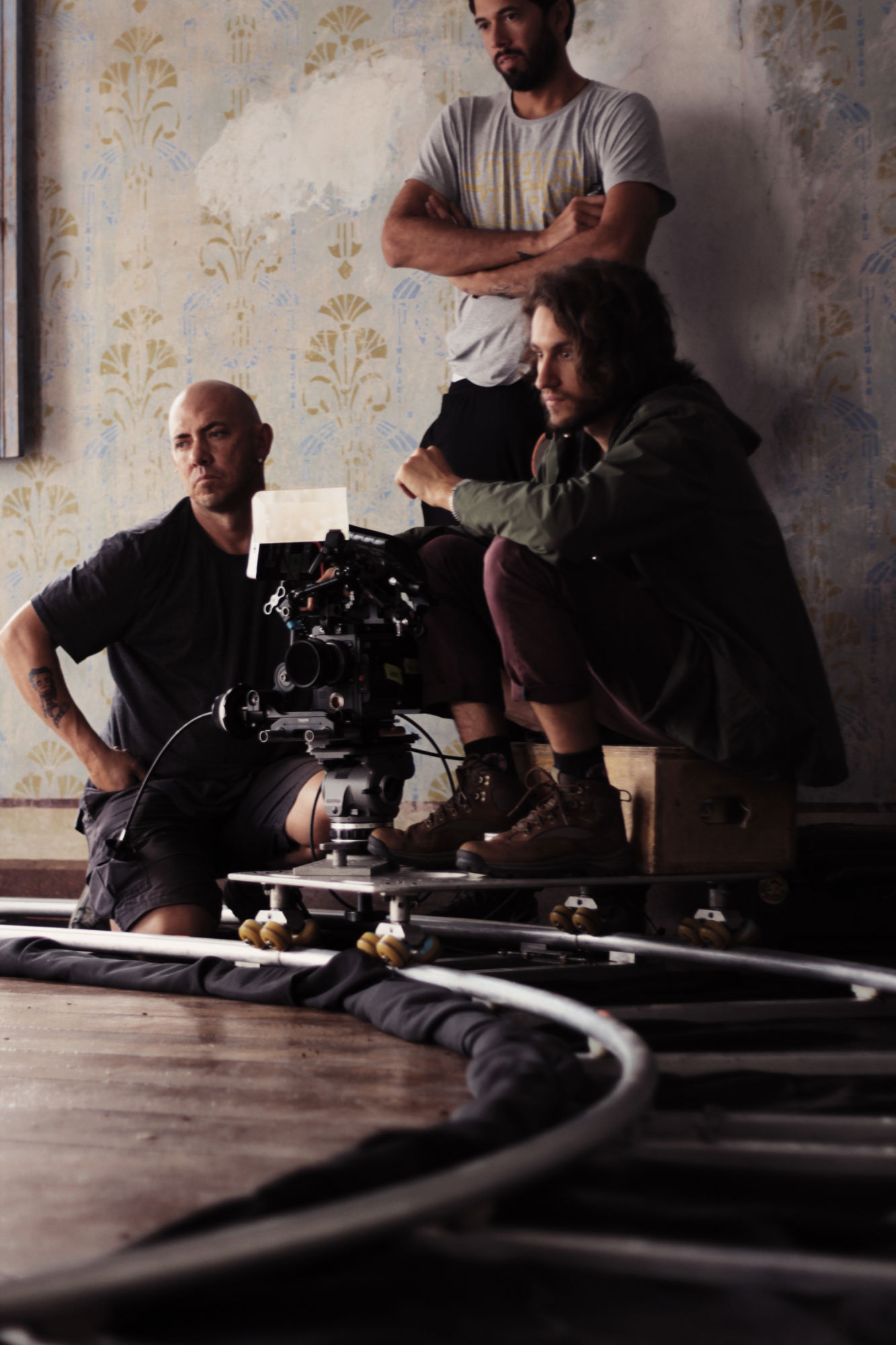


For us, it was important that the cinematography was very naturalistic, but we also wanted a very specific tone and feeling from our images. In order to do that, we mainly used natural available lighting which meant we had to rely on the weather a lot and adapt our production in accordance with it. We kept changing our schedules to get the cloudy skies we were hoping for. Camera movement was also very important for us in this one. My whole aesthetics is very grounded on static shots, so I wanted to experiment with camera movements while also maintaining the visual identity I have been developing. Marcos and I talked a lot about when, how and why our camera would move. We defined very specific rules for each part of the song.
Because the script was developed with a strong connection to the structure of the song, the editing process was quick. However, we spent several months trying to sort out our relatively complex VFX with our limited budget. This was a great lesson for me because we were trying to pull off some things that were well above our material means. In the end, we were able to adapt some things and bring together a team that finalized the film. There are lots of VFX elements that didn’t get close to what we initially envisioned, but I chose to keep these shots in the film because we wanted to be honest with the process and our intentions. I want to look at these shots every time I rewatch this work to be reminded of the lessons I learned in the post-production process.

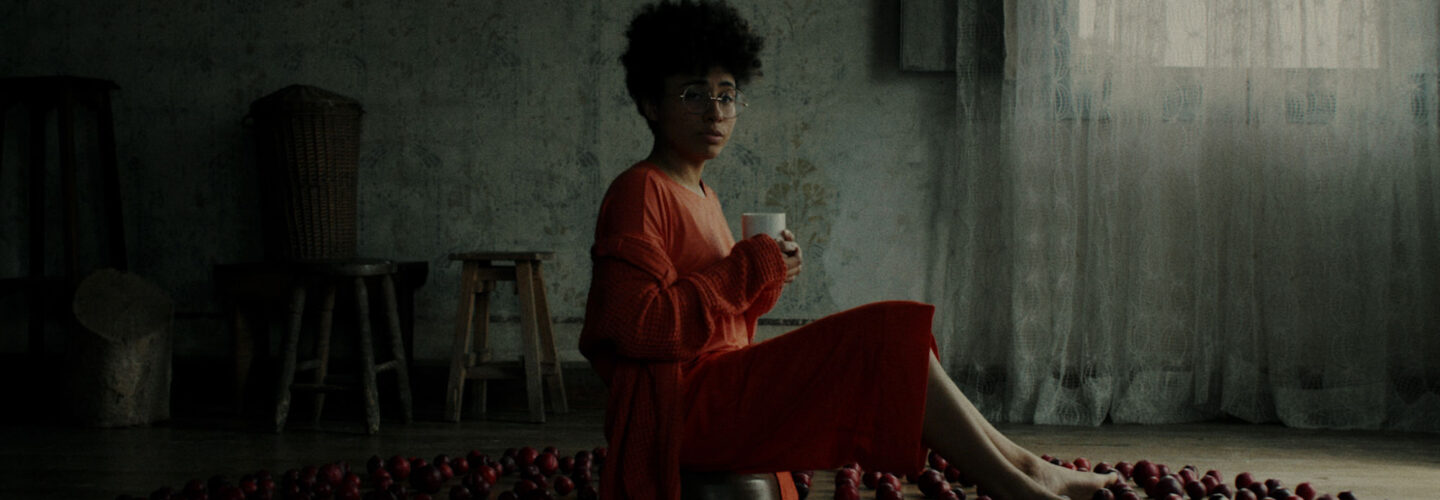

nice!